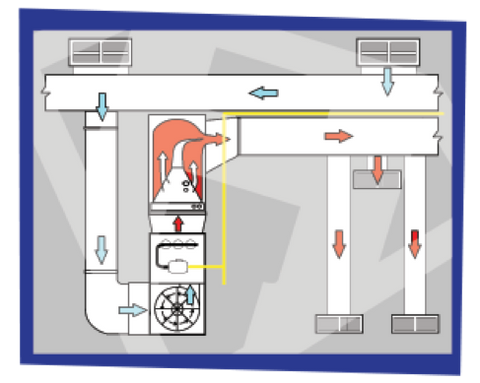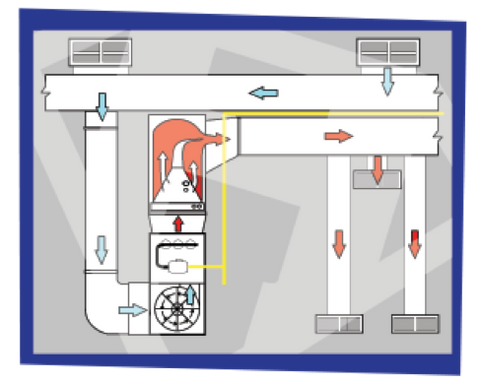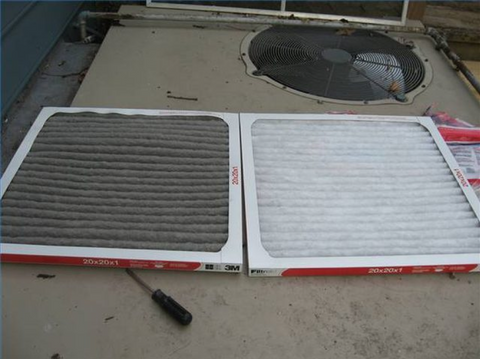What Do Furnace Filters Do?
April 26 2018

What Do Furnace Filters Do?
The air filter within a furnace is often overlooked yet could single-handedly prevent your furnace from operating at maximum efficiency if not maintained properly. Beyond cleaning the air you breathe, a furnace filter’s primary job is to protect the furnace, and more specifically the blower fan, from any undesirable material that could clog up the device. Keeping your filter in check will allow your furnace fan to successfully blow heated air as needed. Additionally, the filter will clean your air to some degree, as an added bonus.
When cold air goes into a furnace return duct, it is hardly clean. In fact, the air that cycles through your furnace is likely filled with large particles of dust, pollen, mold, lint, and bacteria. Below is a basic forced air HVAC system diagram that illustrates the air flow.

The impurities in the air flowing through your furnace are dangerous to both your own personal health and the health of your furnace. Physical human health effects commonly manifest themselves as long-term lung issues such as coughing, chest pain, or general allergy symptoms. The furnace itself will simply fail to cycle air as quickly or heat it as much. These negative effects will likely go unnoticed for some time and identifying a faulty filter as the cause is quite difficult.
Most furnace filters will be able to remove these types of debris with ease, but some types of filters are more effective than others. Luckily, you have this guide to help you choose a filter that is best for your specific furnace and situation. Fiberglass filters are great at catching obvious particles that may enter your furnace but may miss some of the smaller ones. However, fiberglass is extremely affordable for those seeking an average-quality filter. Similarly, a reusable filter obviously saves money long-term, but needs to be physically cleaned every few months and cannot catch the smaller pollutants.

A pleated filter like the ones shown above are the most common, and removes most pollutants successfully for approximately three months, upon which it must be swapped out for a brand new one.
Lastly, an electronic filter has pinpoint accuracy when it comes to removing particles of all sizes, but has an extremely high initial cost with some intermittent maintenance costs as well. Overall, we recommend the pleated, removable filter for its great cleaning efficiency, average duration, and reasonable price.
Changing the filter is usually simple, unless you are working with an electronic filter. First, ensure that your filter is of the correct size. Then either swap the old filter out for a brand new one, or clean and replace as needed. Filters are officially rated through the minimum efficiency reporting value (MERV) system. Higher MERV ratings are better, and represent the filter’s efficiency in removing particles from the air. After you choose your preferred type of filter, the next step is to examine the MERV rating at your local store. From there, you should be able to decide on a proper filter and make a purchase!
Overall, a furnace filter is a key component for any furnace. Cleaning or replacing your furnace filter is a job that must be done consistently to maintain the longevity of your furnace. Be sure to do your research before purchasing a filter, and understand which ones will work with your specific furnace model. As always, feel free to reach out with any questions as we are always here to help and make sure you get the right filter for your HVAC system.

